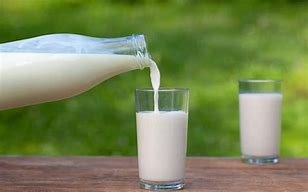The nutritional content of a bottle of milk can vary depending on its volume, brand, and processing method, but generally, we can roughly estimate the nutritional value of a bottle of milk by looking at the nutrients per 100 milliliters or 100 grams. Based on information from various authoritative sources, here is an overview of the approximate nutritional content of a typical full-fat milk bottle (250 milliliters as an example):
Nutrient Overview
Protein: About 3.3 grams per 100 milliliters, so a 250-milliliter bottle would contain approximately 8.25 grams of protein. These proteins, including casein, albumin, globulin, and lactoprotein, are high-quality sources that are easily digested and absorbed.
Fat: Approximately 3.6-4 grams per 100 milliliters, making it 9-10 grams in a 250-milliliter bottle. The fats in milk include saturated, monounsaturated, and polyunsaturated fatty acids. Milk fat is high in quality and easily absorbed by the body.
Carbohydrates: Primarily in the form of lactose, with about 4.8-5 grams per 100 milliliters, resulting in 12-12.5 grams in a 250-milliliter bottle. Lactose is an important source of energy and also aids in calcium absorption.
Minerals:
Calcium: Around 120 milligrams per 100 milliliters, totaling 300 milligrams in a 250-milliliter bottle. Calcium is crucial for maintaining healthy bones and teeth.
Phosphorus: Approximately 93-100 milligrams per 100 milliliters, translating to 232.5-250 milligrams in a 250-milliliter bottle. Phosphorus works with calcium to build strong bones and teeth.
Other minerals like potassium, magnesium, and zinc are also present in milk, albeit in smaller amounts, but they contribute to overall health.
Vitamins:
Vitamin A: Present in significant amounts, essential for vision health.
Vitamin B Complex: Including vitamins B1, B2, B12, crucial for the nervous system and energy metabolism.
Vitamin D: May be fortified in some milk to aid calcium absorption.
Additional Nutrients
Milk also contains various trace elements and bioactive compounds that benefit human health, such as immunoglobulins, lactoferrin, and growth factors, which can enhance immunity and promote growth and development.
Notes
While milk is nut

ritious, not everyone is suitable for consuming it. For instance, those with lactose intolerance should avoid or reduce milk intake, and those allergic to milk should strictly avoid it.
When choosing milk, consider your needs and health status to decide between whole, low-fat, or fat-free milk, as well as whether you prefer milk fortified with additional nutrients like vitamin D.
Milk should be consumed in moderation, as excessive intake may lead to nutrient overload or digestive issues.